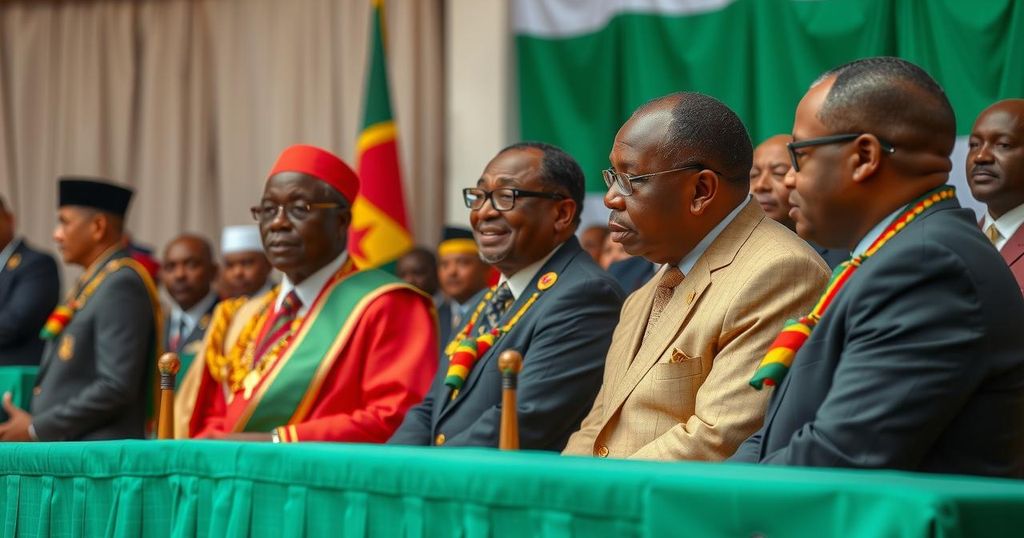Mozambique’s New Parliament Set to Be Sworn In Amidst Protests and Controversy

Mozambique will swear in a new parliament on Monday after disputed elections claimed by the opposition to be rigged. Protests are expected as opposition leader Venancio Mondlane calls for peaceful demonstrations. Major parties Renamo and MDM are boycotting the session, citing a lack of democratic integrity. Tensions following the elections have resulted in significant unrest, claiming many lives and disrupting the economy.
Mozambique is poised to confirm its new parliament on Monday, amidst ongoing tensions following the October elections, which were marred by allegations of rigging from the opposition. Venancio Mondlane, the opposition leader, has urged his supporters to engage in peaceful protests from Monday to Wednesday, coinciding with Daniel Chapo’s impending inauguration as president. Mondlane asserts that he rightfully won the presidential election, despite official results favoring Chapo’s ruling Frelimo party, which has held power for five decades.
In protest of what they deem as undemocratic practices, opposition parties Renamo and the Democratic Movement of Mozambique (MDM) have declared their intention to boycott the parliamentary session to be held on Monday. Renamo, which secured 28 seats in the 250-seat assembly, expressed indignation over the ceremony, deeming it a blatant disregard for the democratic will of the Mozambican population who were denied the opportunity for “free, fair and transparent” elections. The MDM’s absence serves to highlight their alignment with calls for electoral integrity.
Frelimo emerged victorious with 171 seats, while the Podemos party managed to secure 43 seats. Mondlane claims he received 53 percent of the votes during the presidential election, yet the official count reported only 24 percent against Chapo’s 65 percent. Having returned from a two-month exile last Thursday, Mondlane has rallied thousands of supporters in the capital, which led to violent confrontations with security forces, resulting in at least three fatalities as reported by an electoral monitoring group.
In a recent Facebook post, Mondlane urged a national strike to disrupt activities throughout the upcoming days, encouraging his followers to manifest their dissent against the official election outcome. He cautioned that if the assembly proceeds with the oath, it would signify a betrayal of the people’s will. Further, he urged demonstrations against those perceived to have undermined the electoral process, as the post-election unrest has mounting casualties, estimated at around 300 deaths, spotlighting allegations of excessive force employed by the authorities.
The disturbances have severely impacted Mozambique’s economy, hampering cross-border trade and adversely affecting key sectors such as shipping, mining, and industry.
The political climate in Mozambique has become increasingly volatile following contested elections in October. Authorities, led by the Frelimo party, have faced allegations from opposition factions, particularly Renamo and the MDM, of conducting rigged elections. The tensions have escalated into protests and violent clashes, leading to loss of life and severe economic repercussions for the nation. This situation reflects deeper issues within Mozambique’s political framework, plagued by a lack of fair electoral processes and widespread discontent among opposition groups.
The impending swearing-in of Mozambique’s new parliament, amidst accusations of electoral fraud and subsequent violence, highlights the country’s ongoing political turmoil. With significant opposition parties boycotting the event, the legitimacy of the electoral process remains in question. As protests continue to arise, the potential for further unrest looms, raising concerns over the stability of governance in Mozambique and its future political landscape.
Original Source: www.voanews.com






